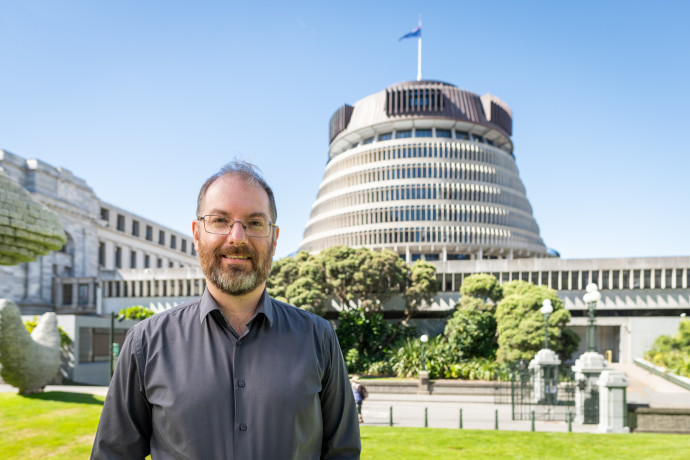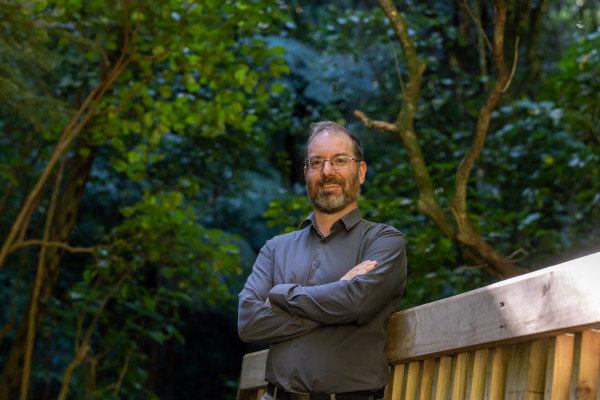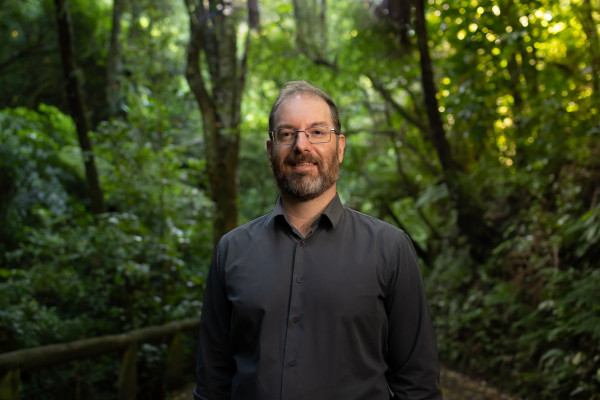Dr Sam Crawley

Impactful findings are inspiring Sam Crawley to continue his climate change research journey. He talks about his research from Te Herenga Waka – Victoria University of Wellington’s Political Science programme.
Q. What started you in your research?
I came to research a little bit later in life than some people. I worked for about 15 years as a software developer in Wellington and London. I was really worried about climate change and wanted to do some kind of work on that. I started political science classes, here at Te Herenga Waka, while I was still working in IT. This led me to apply for a PhD and that's where I began to research public opinion on climate change.
Q. Tell us about your research?
Climate change is a really pressing issue, one that a lot of us are worried about, but politicians are not putting the really ambitious sort of policies in place needed to address it. I want to understand why there’s this disconnect, and issue salience is one part of that.
My research looks at whether people think climate change is more or less important relative to other things. So, whether issues like health care, education (for people with children), the economy, job security, and the cost of living are more immediate to people than climate change, and what this might mean when it’s time to vote.
Q. Why did you apply for a Whitinga Fellowship?
COVID hit in the last year of my PhD. Thankfully, I'd done all my data collection at that point, but it was a very challenging time. After my examination, I didn't really have too many options. It’s hard to remember now, but in 2021 there was a lot of uncertainty and I couldn’t go overseas, where a lot of the postdoc opportunities are, at least in political science.
I was really happy when the Whitinga opportunity came up. Without it, I would have had to try for casual teaching contracts, or to consider leaving academia, given the situation at the time.
Q. What other opportunities has the Whitinga led to?
We're very lucky here at Victoria to have a great political science programme and staff to work with. I still have a lot of contact with my PhD supervisors, Hilde Coffé and Ralph Chapman, and my post-doc supervisor Fiona Barker is really supportive, which I’m very thankful for.
Quite often though, people find that while PhD programmes are well supported, it can be hard to stay in academia after that. I'm currently the co-chair of Maunuhanga - Wellington Postdoctoral Society, which was formed a couple of years ago.
We're providing support for postdocs, teaching fellows, and anyone with a PhD who is on a fixed term contract, to navigate the academic system – for grant applications, negotiating pay, those sorts of things – and to build a community for postdocs at the University.

Q. What’s next for your research?
I found some interesting differences between Australia and New Zealand. People were asked to rank different issues from most the least important, and something like 19% of people in Australia put climate change at number one, whereas only 9% of people in New Zealand did.
A lot of people might think that climate change is more important in New Zealand than Australia, but actually it's the other way around.
There’s been media interest around this, which is really cool - when all the work you're doing gets some public attention. That result and trying to understand why, I love doing that.
I've had amazing support from my partner, Pinky, throughout my research journey. But once the Whitinga is over, I'm still a little bit uncertain about the future and what this means for us. I’d really like to stay in academia, but the job market's pretty tough.
Being able to do research, it's a real privilege. You work on problems that you're really interested in and you feel are important. Not everyone gets that opportunity, and I appreciate every day of this two-year Fellowship.

